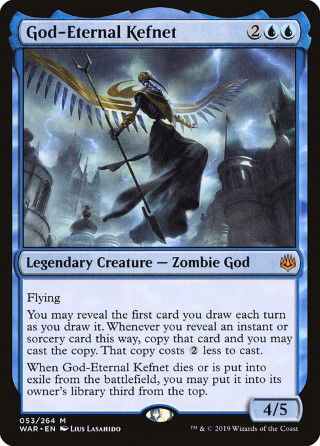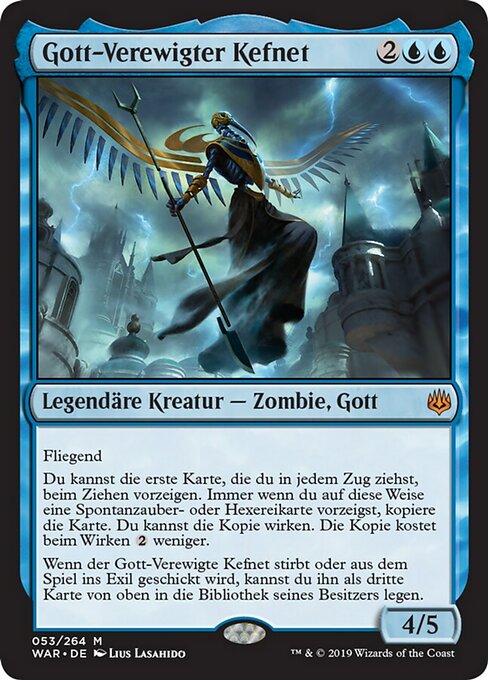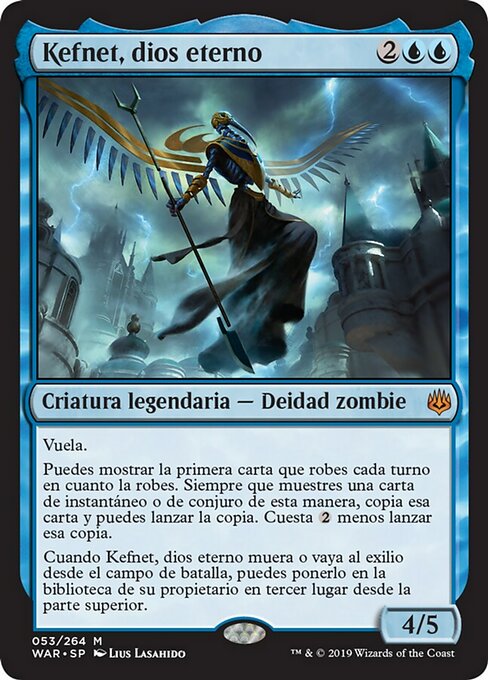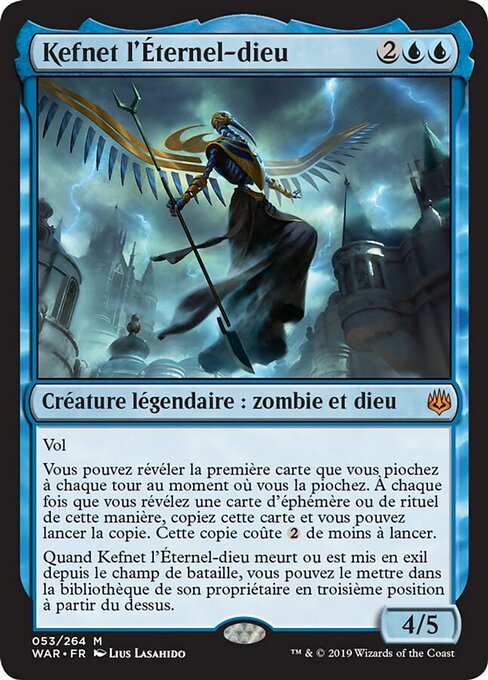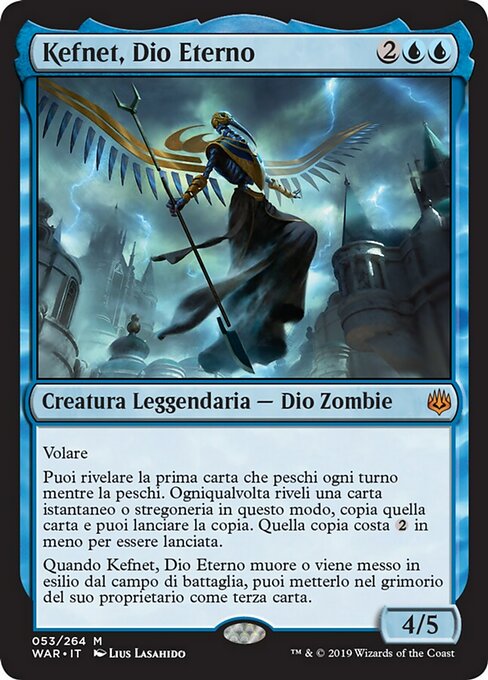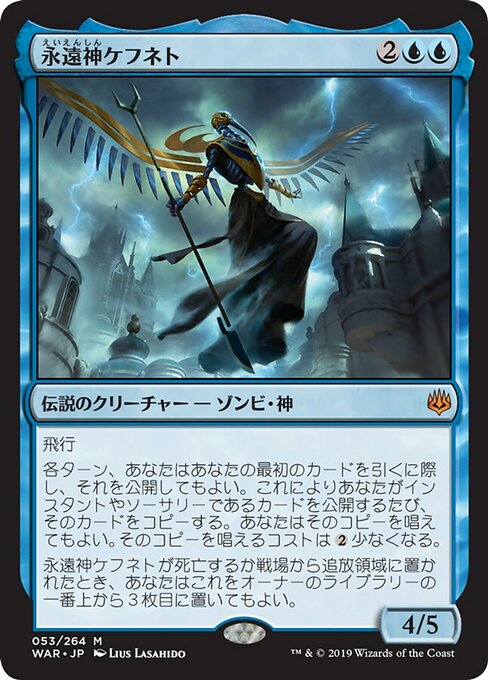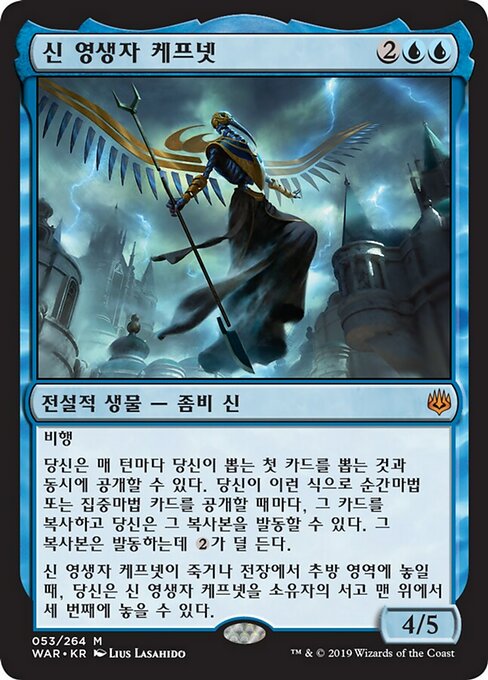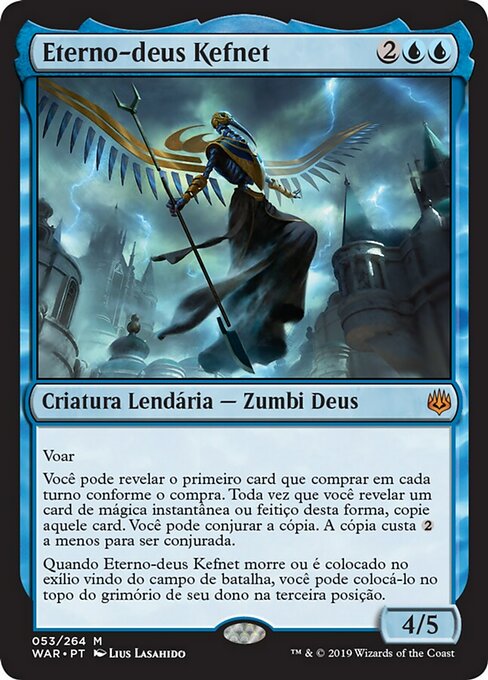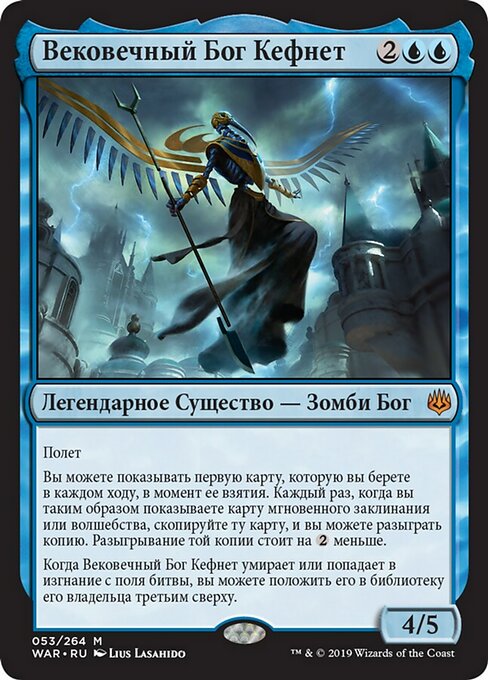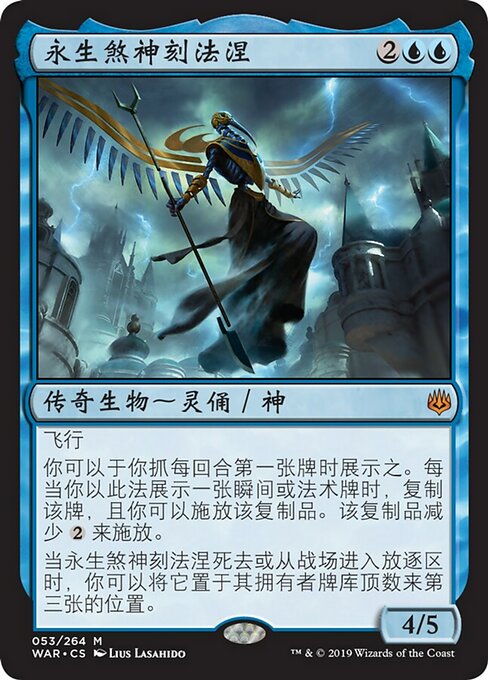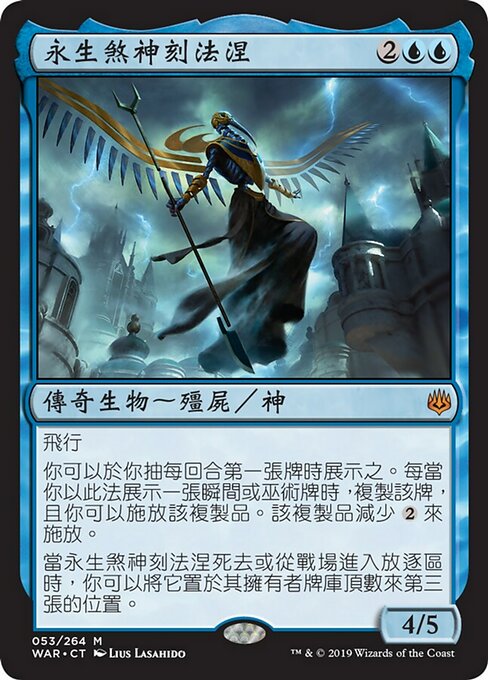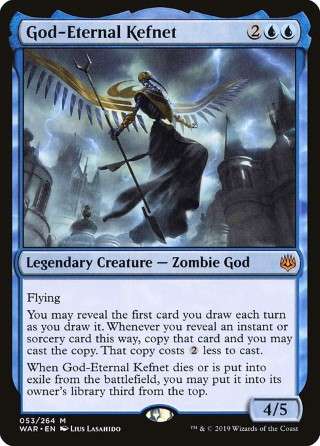
God-Eternal Kefnet
Legendary Creature — Zombie God
Flying
You may reveal the first card you draw each turn as you draw it. Whenever you reveal an instant or sorcery card this way, copy that card and you may cast the copy. That copy costs less to cast.
When God-Eternal Kefnet dies or is put into exile from the battlefield, you may put it into its owner's library third from the top.
|
War of the Spark (WAR)
#53, Mythic Rare |
Illustrated by: Lius Lasahido
Multiverse ID: 460980
Not Legal Alchemy BO1
Not Legal Standard BO1
Not Legal Brawl
Not Legal Pauper
Not Legal Traditional Standard
Not Legal Traditional Alchemy
Rulings
- 2019-05-03
In a multiplayer game, if you put another player’s God onto the battlefield under your control, it will be exiled as you leave the game. If you were still the controller of that God, you would control its triggered ability but you have left the game; that ability won’t resolve and the card remains in exile. Similarly, if you lose the game at the same time that another player’s God that you put onto the battlefield is destroyed, it remains in its owner’s graveyard. - 2019-05-03
If an effect exiles the God and immediately returns it to the battlefield, its last ability triggers but will have no effect. However, if an effect exiles it and would return it to the battlefield at a later time, the God’s ability may return that card its owner’s library first. If it does, the effect that exiled it won’t return it later. - 2019-05-03
If you control another player’s God when it dies, you decide whether to put that card into its owner’s library. - 2019-05-03
If the God’s owner has two or fewer cards in their library, the God is put on the bottom of their library as its last ability resolves. - 2019-05-03
If one of these Gods leaves the graveyard or exile while its last ability is on the stack, it will remain in its new zone, even if that zone is a graveyard or exile. - 2019-05-03
If you somehow control more than one God-Eternal Kefnet (perhaps because one is a Spark Double), you may reveal a card you draw for any number of their abilities. One at a time, each will copy the card if it’s an instant or sorcery, and you may cast each of them. Each copy resolves before you cast the next, and each copy’s cost is reduced by only . - 2019-05-03
You don’t have to reveal a drawn card if you don’t wish to copy it at that time. - 2019-05-03
If one of these Gods would die and it’s your commander in the Commander variant, you may put it into the command zone instead. If you save your commander this way, it doesn’t die and you won’t put it into your library. The same is true if it would be exiled. - 2019-05-03
The copy is created in and cast from your hand. - 2019-05-03
You can cast the copy during the resolution of the triggered ability if it’s a sorcery, no matter whose turn it is or which phase it is. - 2019-05-03
You can cast the copy only as Kefnet’s triggered ability resolves. If you don’t want to cast it at that time (or you can’t cast it, perhaps because there are no legal targets available), the copy ceases to exist. You can’t cast it later. - 2019-05-03
If an effect puts a card into your hand without using the word “draw,” the card wasn’t drawn. - 2019-05-03
Multiple card draws are always treated as a sequence of individual card draws. For example, if you haven’t drawn any cards yet during a turn and cast a spell that instructs you to draw three cards, you’ll draw them one at a time. Only the first card drawn this way may be revealed and copied with Kefnet’s ability. - 2019-05-03
You can reveal and copy an instant or sorcery card this way on any turn, not just your own, if it’s the first card you’ve drawn that turn. - 2019-05-03
It’s important to reveal the first card you draw each turn (or choose not to reveal it) before it is mixed with the other cards in your hand. You look at the card as you draw it before choosing whether to reveal it. - 2019-05-03
If you reveal a card this way, it remains revealed until Kefnet’s triggered ability finishes resolving. - 2019-05-03
If the card leaves your hand before Kefnet’s triggered ability resolves, you’ll copy it using its last known information. - 2019-05-03
To determine the total cost of a spell, start with the mana cost or alternative cost you’re paying, add any cost increases, then apply any cost reductions (such as that of Kefnet’s ability). The converted mana cost of the spell remains unchanged, no matter what the total cost to cast it was.
| PRINTS | USD | EUR | Tix | |
|---|---|---|---|---|
|
|
$2.50 | €1.82 | 0.02 | |
|
|
||||
|
|
USD Non-foil
USD Foil
EUR Non-foil
EUR Foil
Languages
| German | ||
| Spanish | ||
| French | ||
| Italian | ||
| Japanese | ||
| Korean | ||
| Portuguese | ||
| Russian | ||
| Chinese | ||
| TraditionalChinese |

